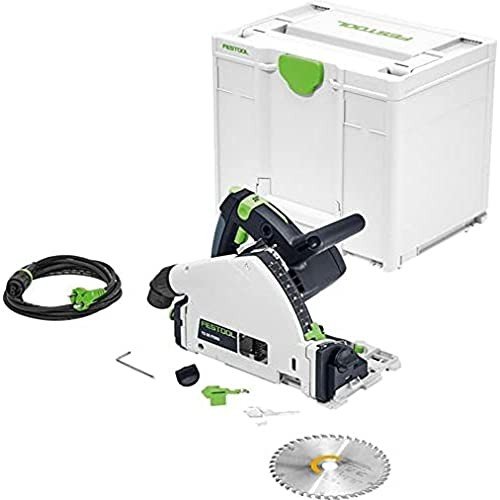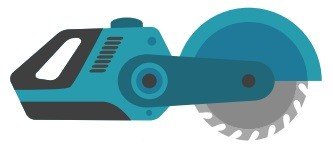 Power Tools Basics – Why You Shouldn’t Buy the Wrong Ones
Power Tools Basics – Why You Shouldn’t Buy the Wrong Ones
No matter if you’re an experienced professional or a novice DIYer having the right power tools can make all the difference. But with numerous options available, finding the best ones for your needs can be a challenge.
Before making a purchase you must consider a variety of factors, including the price as well as the desired features and warranty programs. Utilize this buyer’s checklist to make an educated decision that is in line with your needs and budget well.
Low-Quality or Cheap-Quality Options
Power tools store online (find out here now) are essential for a variety of projects. But they can also be a source of frustration and waste, as well as risk if you purchase the wrong tools. It’s not always easy to select the correct power tool, especially with the many options available.
To get the most use of your power tools, it is important to select a trusted brand with a solid track record. You can read reviews and do research to find out how durable they are, and which hold up the best. Also, look at the warranty coverage to determine whether it is adequate.
High-end power tools tend to be more expensive than their less expensive counterparts, but they will last longer and provide better results. It’s worth the investment if you’re planning on using them often.
 You can locate a top-quality power tools at a reasonable price by purchasing secondhand or refurbished tools. Online marketplaces such as Craigslist and Facebook Marketplace are great places to begin, however it’s important to inspect the tool thoroughly prior to purchasing. Garage sales and estate sales are great sources to find bargains. Make sure that the tool is in working condition and is compatible with the type of battery you like.
You can locate a top-quality power tools at a reasonable price by purchasing secondhand or refurbished tools. Online marketplaces such as Craigslist and Facebook Marketplace are great places to begin, however it’s important to inspect the tool thoroughly prior to purchasing. Garage sales and estate sales are great sources to find bargains. Make sure that the tool is in working condition and is compatible with the type of battery you like.
You can also purchase power tools at the retailer that has an incentive program. This can help you save money as well as build your tool collection more quickly. Many retailers offer discounts for the holidays and for new customers in addition to reward programs.
Not last, you should take a look at the reputation and history of innovation of the manufacturer. Established brands are more likely than brands that are newer to offer reliable customer service and stand behind their products. Additionally, look out for features that are beneficial to you like a longer warranty or a breadth of product options.
Some of the most popular power tools for DIYers include Dewalt, Ryobi, Bosch, Makita, and Ridgid. Dewalt’s cordless system is well-respected, thanks to its Power Stack pouch cells and its innovative Power Detect feature. The HF tools are also popular however, they may not be as durable as high-end tools from other brands.
Buying the Wrong Tool for the Job
Power tools can help us achieve a wide variety of tasks around the house as well as on projects, bringing enhanced efficiency, precision, and safety to all kinds of work. But they can also pose dangers if used incorrectly. The wrong tool for a specific job could result in a variety of consequences including injuries and fire hazards to wasted material and poor results. It’s important that you understand the fundamentals of power tools, including how to store and purchase them.
A power tool is a device that’s handheld that is powered by an electric motor to accomplish tasks like drilling holes or cutting through materials or sanding surfaces smooth. Power tools can be corded or cordless and include various accessories such as drill bits and sanding disks. Some also come with a battery to provide an increase in power and speed which allows the tool to work for longer durations without needing to be recharged.
It is important to purchase power tools from trusted brands that are renowned for their quality and durability. Look for models with a durable construction and a good battery life, like the ones made by Makita or Bosch. Also, make sure to purchase the proper accessories and safety equipment, like goggles, gloves and ear plugs depending on the type of task you’re tackling.
Store your power tools in a secure location, away from moisture or extreme temperatures. Utilizing a cabinet, toolbox, or pegboard is a great option, as they can be organized and easily accessible if needed.
Selecting the right power tool for the job is a vital part of workplace safety and productivity making sure you get the most out of your investment and achieve top-quality results. Many people make the mistake of buying the wrong power tool for the task because they are not aware of the task, are not aware, or are in the process of making up their own rules. This can lead to grave consequences. The following 10 power tools mistakes serve as a reminder of the dangers.
Buying the Wrong Brand
A bad power tool could cause increased costs in the future, and also compromise safety and quality. Tools that aren’t of the highest quality or inexpensive can quickly add up in repair costs, replacement parts and upgrades, regardless of whether the project requires a basic cordless drill or a more advanced cordless tool. Furthermore, purchasing the wrong tool can affect the resale value and make it difficult to sell in the future.
For many DIY and home improvement enthusiasts, the decision of which power tools to purchase can be a daunting task. From browsing The Home Depot or Lowe’s to browsing Amazon, choosing the right tool can lead into a sea of options that can cause feeling of confusion and uncertainty. While there are essential power tools that everybody needs (power drills, for instance) however, more sophisticated equipment is required if you’re more than just a hobbyist, or who frequently tackles home-based projects. This is where the right brand of power tools can make all the difference.
It is crucial to choose power tools that have a track record of durability and performance, and also strong demand for the product. For the majority of people, this means avoiding the cheaper options which are more likely to break down or overheat and cause injuries. Rather, you’ll want to consider higher-end tools that will be more expensive, but provide the best combination of features, reliability, and functionality for professional and amateur users alike.
It is essential to keep up-to-date on the latest product releases and technological advances when selecting the right tools for your inventory. You’ll be able to create an assortment that will meet the ever-changing requirements of the market, while still ensuring a high demand and resale value to your business.
It’s also important to keep in mind that, like some car dealers only carry Fords and some only sell Hondas There are certain brands of power tools that are sold exclusively at specific locations or online. If you’re shopping for DeWalt or Dremel or Black + Decker or Ryobi ensure that you find the official retailer. This will ensure that you get an authentic, brand new tool with a warranty from the manufacturer.
If you buy the wrong battery, it will be damaged.
When it is about power tools, they can be like Gonzales, zipping through work faster than you could say, “Bob is your uncle.” But a poor battery choice could lead to a disaster. Brand-name batteries provide a variety of advantages, including higher performance, a longer lifespan and lower replacement costs.
A faulty battery can lead to insufficient power output for the job required and can cause erratic operation, inability to recharge, or even fires and explosions. Certain of problems can be addressed by properly charging and storing the battery however others require a replacement. The wrong battery type can also cause a tool to malfunction or shut off during use, leading to frustration and wasted time.
Batteries are available in a variety of amperages and voltages, that range from the old nickel-cadmium battery used in older power tools to more modern lithium Ion versions. The most common power tools utilize lithium batteries due to their superior energy density, lightweight and slow self-discharge rates. However, choosing a battery that has the wrong voltage or amperage could cause problems such as insufficient power, damage to the tool and charger overheating, fires, and explosions which can cause serious injuries.
Modern power tools communicate with batteries using electronic chips that are able to detect the amps and voltages required. Batteries that do not follow the correct protocol for communication could cause a decrease in the performance of the tool, shorter battery life and even damage to the battery.
The composition of a battery may affect its life span. Some battery types are more suited to warmer climates, which can reduce their effectiveness and reduce the number of charge cycles. Other factors, including poor maintenance, excessive charging and extreme temperatures, could also affect battery efficiency and longevity.
It is best to stick with the manufacturer-designed battery for a given tool and model. This will ensure seamless compatibility and proper power delivery, as well as give you the highest level of security and peace of mind. Contractors should be wary of purchasing knock-off or counterfeit batteries, as they aren’t tested and certified according to the same safety standards as an authentic OEM product. These knock-off or fake batteries are often sold at a significantly cheaper price, but they could be an extremely risk to safety.
